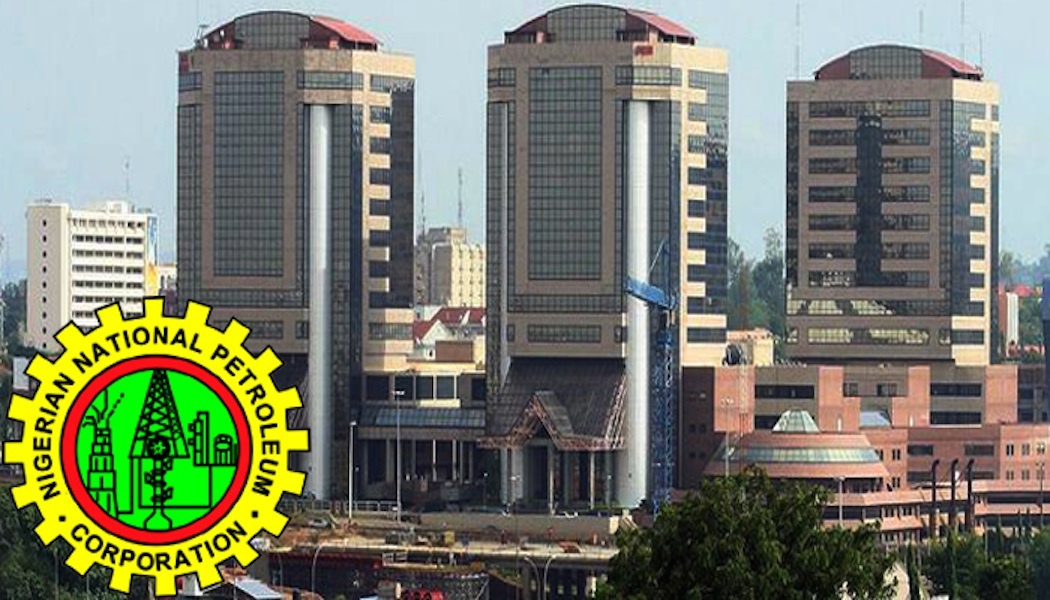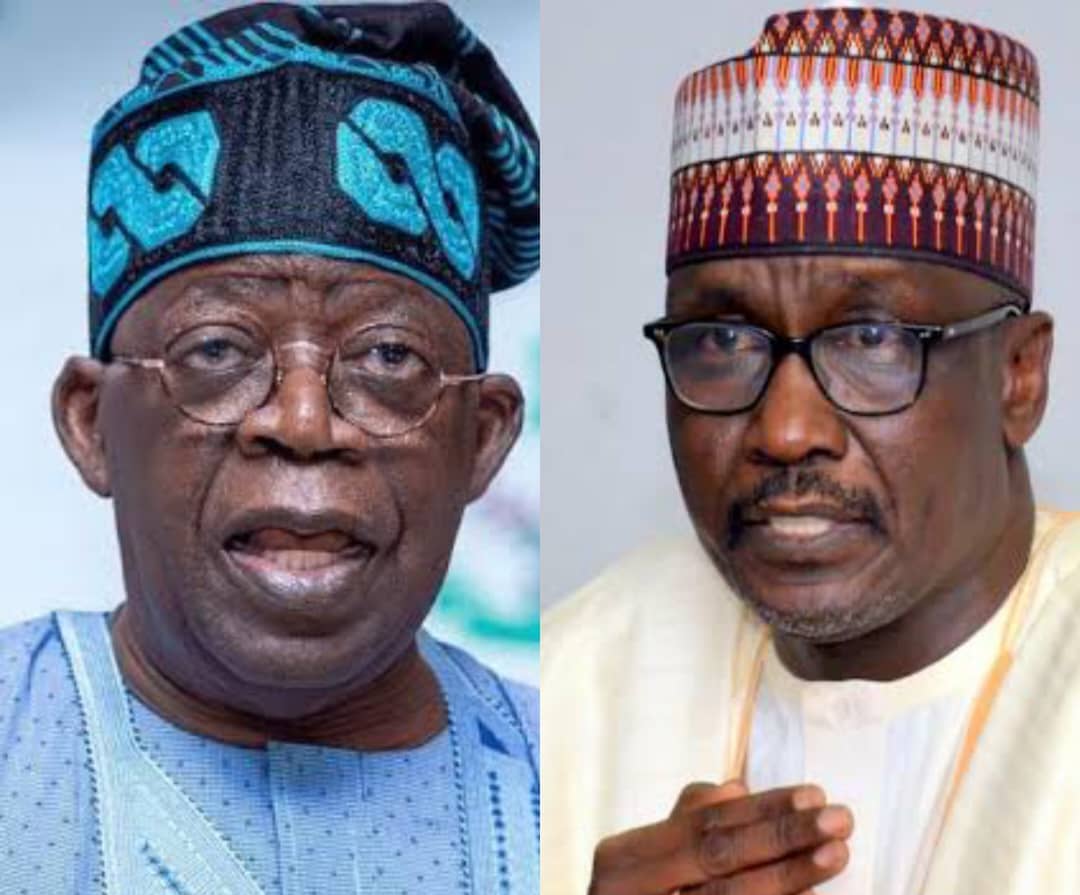Economy
NNPC to Pay First Dividends in Decades in FY 2020—Kyari

By Adedapo Adesanya
The Nigerian National Petroleum Corporation (NNPC) has said it was working diligently to ensure that for the first time in decades, its shareholders would be paid dividends by the end of 2020.
This was disclosed by the Group Managing Director of NNPC, Mr Mele Kyari, at a media parley over the weekend, adding that the organisation was now more open to public scrutiny with its decision to publish its audited financial reports for the first time in 43 years.
He added that although the pandemic had prevented the corporation and its partners from attaining the three million barrels per day crude oil production target, NNPC was determined to cut its losses and become a profit-making entity.
Mr Kyari noted that other transparency initiatives taken by the corporation included its monthly financial reports and joining as a supporting organisation of the Extractive Industries Transparency Initiative (EITI).
The NNPC boss said the national oil corporation had been able to cut its losses by over N800 billion between 2018 and 2019, stressing that based on its projections, it would declare dividends in 2020.
The helmsman noted that the crisis brought about by the COVID-19 pandemic and the effect on its activities, commencing and continuing new oil and gas projects, have been seriously stalled by the liquidity challenges in the oil sector.
He stated that the crisis in the global oil market had forced companies, including NNPC, to further cut down losses, rework project costs, as well as review the production cost per unit of crude oil to remain competitive.
The GMD declared that in the recent past, only the current administration of President Muhammadu Buhari had not interfered in the operations of NNPC. He said this had given the corporation the free hand to take decisions based on facts and figures.
According to him, “There is no company in the country which has cut its losses within one financial year by N800 billion. We have improved efficiency by cutting 97 per cent of our losses.
“NNPC has never published its audited financial statement in 43 years. We came and started doing that and released the 2018 financial statement. We were not afraid of doing that and there were a lot of criticisms that we lost money in refinery operations and pipeline business.
“Our vision is that NNPC will become a company of excellence and declare dividends to Nigerians and shareholders. We are optimistic that at the end of 2020, NNPC should be able to declare dividends to Nigerians, in spite of the impact of the COVID-19 pandemic.”
Mr Kyari reiterated that the COVID-19 pandemic resulted in a net industry loss of about $1 trillion this year.
He said, “According to industry analysis carried out in quarter one, 2020, Exploration and Production (E&P) companies are at risk of losing about $1 trillion in revenue by the end of 2020.
“With new lockdown orders due to resurgence of COVID-19 in Europe and other industrial nations, the estimated revenue shrinkage may likely grow above Rystad Energy estimates by the close of 2020.
“This financial impact and the resultant poor liquidity position is making funding of both existing and new projects more difficult as companies cut spending and defer projects.”
On the issue of political meddling in the operations of NNPC, Mr Kyari explained that having worked for the corporation for almost three decades, it was under the Mr Buhari administration that all forms of interferences stopped.
He stated, “I can confirm that the privilege we have today in NNPC of having unfettered control without any distraction or interference to make decisions and be accountable and responsible for our decisions has never happened until this government.
“I can tell you this because I have been around for 29 years and have worked closely with the top management of the NNPC for about 15 years. This is the only president who has never asked NNPC to do something.
“The president only wants to know and be sure that what we are doing is in the best interest of the country.”
The GMD stated that Nigeria remained more of a gas country than oil, disclosing that the corporation’s new focus is on gas development, as it is the most resilient source of energy in the energy transition process.
He explained, “The only hydrocarbons that survived during the COVID-19 with minimal negative change was gas. Gas will help the country out of its major challenge of electricity. The biggest challenge we have here is to take electricity to homes and industries and to use the resources we have to create that energy this country needs.
“Today, the two reasons we are not getting electricity are because the production is low and we are not able to transmit it to those who need it. That means there is a bottleneck in transmission and distribution system.”
Mr Kyari said despite the difficult times in the industry, NNPC was able to maintain its obligations to the Federation Account for seven months without failure.
Economy
Grey to Cut Cross-Border Payment Costs with New USD Offering

By Adedapo Adesanya
A cross-border payments solutions company, Grey has expanded its business banking platform to include US Dollar corporate accounts, bulk international payments, and USDC stablecoin support, all integrated into a single system.
The company is positioning itself as a low-cost, faster alternative to traditional international banking, particularly for businesses in emerging markets as it enables companies to open US Dollar accounts, receive global payments, and send payouts to 170+ countries, including bulk transfers, within minutes.
Grey aims to solve common cross-border payment challenges, particularly the high transfer costs that often range between 6 and 7 per cent of transaction value, prolonged settlement cycles that can stretch across several days, and the limited access many businesses face when trying to open and operate foreign currency accounts. In addition, companies frequently contend with hidden intermediary fees and poor foreign exchange transparency, both of which undermine cost predictability and effective cash flow management.
By integrating USD business accounts and USDC stablecoin functionality into its platform, Grey enhances its value proposition around faster settlement, clearer pricing structures, improved cost efficiency, and broader global accessibility. The expanded capabilities enable businesses to manage international transactions with greater speed, transparency, and operational control.
“Businesses may operate without borders today, but access to reliable global banking remains uneven, particularly for companies in high-growth markets,” said Mr Idorenyin Obong, Co-founder and Chief Executive Officer of Grey. “We’re closing that gap and enabling businesses to move money faster, with greater transparency and control, wherever their clients or partners are based.”
“When payments are delayed, or costs are unpredictable, growth stalls,” added Mr Joseph Femi Aghedo, Chief Operating Officer and Co-founder of Grey. “Grey eliminates those friction points, giving businesses a faster, simpler way to manage payroll, supplier payments, and partner payouts across borders. Adding USD and stablecoin capabilities makes these benefits accessible to even more customers.”
Established in Africa in 2020, Grey has a presence in key markets, including the United States, the United Kingdom, and Europe, and has recently expanded its services and operations into Latin America and Southeast Asia.
Since its inception, the company has consistently enhanced its services to empower digital nomads worldwide, regardless of location. Grey’s offerings include multi-currency accounts, low-cost international money transfers, a virtual USD card, expense management tools, and robust security measures.
Economy
Quidax, Lisk to Unlock Stablecoins, On-chain Financial Opportunities

By Aduragbemi Omiyale
A partnership designed to expand access to stablecoins and on-chain financial opportunities for everyday users and businesses has been entered into between Quidax and Lisk.
The partnership provides a critical gateway for the developer community, as builders on the Lisk network can now leverage Quidax’s robust digital asset infrastructure to access stablecoins and local currencies at competitive rates.
This institutional-grade infrastructure is designed to power “future-forward” financial products, ranging from neobanks and cross-border payment platforms to regional exchanges and global fintech solutions. It will also allow Quidax customers to trade and move value seamlessly using USDT, USDC, LSK, and Ether (ETH) on the Lisk network.
The collaboration will also accelerate the adoption of Web3 solutions that solve real-world financial challenges for millions of customers across Africa by combining Quidax’s deep local liquidity and compliant framework with Lisk’s scalable L2 technology.
In 2024, Quidax became the first crypto exchange to receive a provisional operating license from Nigeria’s Securities and Exchange Commission (SEC).
“The partnership with Lisk enables us to extend our platform to serve more people and cater to the increasing demand from products and services that want to integrate our stablecoin and digital assets product to build products across Africa,” the Chief Infrastructure Officer at Quidax, Mr Morris Ebieroma, said.
Also commenting, the Ecosystem Lead for Africa at Lisk, Ms Chidubem Emelumadu, said, “Africa represents one of the most critical frontiers for blockchain innovation, where the demand for reliable and inclusive financial tools is urgent.
“Our partnership with Quidax expands access to stablecoins and on-chain financial opportunities for everyday users and businesses. At the same time, it gives founders building on Lisk the critical infrastructure they need to create solutions that can scale meaningfully across the continent,” she added.
Economy
Customs Urges Freight Forwarders to Adopt Automated Licence, Permit System

By Adedapo Adesanya
The Nigeria Customs Service (NCS) has urged freight forwarders to adopt its automated Licence and Permits Processing system to reduce the cost of doing business.
This advice was given by the Assistant Comptroller-General of Customs, Mr Muhammed Babadede, during a stakeholders’ engagement on automation held in Lagos on Monday.
He noted that the reform responds to longstanding demands for faster, more transparent and simpler procedures for industry stakeholders, disclosing that Comptroller-General of Customs, Mr Bashir Adeniyi, has approved the full automation of the service’s licences and permits processes.
“For years, stakeholders dealt with paperwork, long queues and uncertainty from manual processing. Those days are coming to an end.
“This sensitisation is across all zones. The goal is to ensure stakeholders understand the automated system before implementation,” Mr Babadede said.
He said automation would enable applications and renewals from offices or mobile phones, eliminating visits to customs formations, assuring stakeholders of a fair and consistent process, and reducing errors associated with manual documentation.
He said automation would improve record-keeping, supervision and service delivery without increasing pressure on officers.
The Deputy Comptroller-General, Tariff and Trade, CK Naigwan, also represented by Mr Babadede, reiterated management’s commitment to seamless implementation.
Meanwhile, the Comptroller of Customs for Licence and Permit Unit, Mrs Ngozika Anozie, praised the Comptroller-General for driving innovation within the Service, saying the automation aligns Customs procedures with global best practice and strengthens institutional efficiency.
According to her, the reform reflects the three-point agenda of the Chairman of the World Customs Organisation, Mr Adeniyi, centred on consolidation, collaboration and innovation.
She said the system would enhance the ease of doing business in the maritime sector and boost national revenue generation.
“Automation will cut business costs and reduce travel risks for stakeholders
“They will no longer travel repeatedly to Abuja, paying for transport, hotels and feeding to process licences and permits,” she said, adding that the platform would automatically reject fake documents and accept genuine submissions, curbing fraudulent practices.
“The CGC is determined to sanitise the system, and we are committed to achieving that objective,” Mrs Anozie said.
On his part, the Assistant Superintendent of Customs, Mr Ibrahim Usman, said the Licence and Permit Unit operates under the Tariff and Trade Department.
He explained that the unit ensures proper issuance of licences and permits and compliance with import regulations.
Mr Usman said all licences and permits expire on December 31 of their issuance year.
He added that the portal would become fully operational after nationwide sensitisation, with stakeholders duly informed.
Customs Area Controller, Tincan Island Command, Mr Frank Onyeka, thanked stakeholders for their continued support.
He urged them to take the exercise seriously to achieve seamless processing across Customs operations.
Stakeholders raised concerns about online payment integration and potential technical disruptions.
Officials addressed the questions and pledged continued engagement to ensure smooth implementation nationwide.
-

 Feature/OPED6 years ago
Feature/OPED6 years agoDavos was Different this year
-
Travel/Tourism10 years ago
Lagos Seals Western Lodge Hotel In Ikorodu
-

 Showbiz3 years ago
Showbiz3 years agoEstranged Lover Releases Videos of Empress Njamah Bathing
-

 Banking8 years ago
Banking8 years agoSort Codes of GTBank Branches in Nigeria
-

 Economy3 years ago
Economy3 years agoSubsidy Removal: CNG at N130 Per Litre Cheaper Than Petrol—IPMAN
-

 Banking3 years ago
Banking3 years agoSort Codes of UBA Branches in Nigeria
-

 Banking3 years ago
Banking3 years agoFirst Bank Announces Planned Downtime
-

 Sports3 years ago
Sports3 years agoHighest Paid Nigerian Footballer – How Much Do Nigerian Footballers Earn















